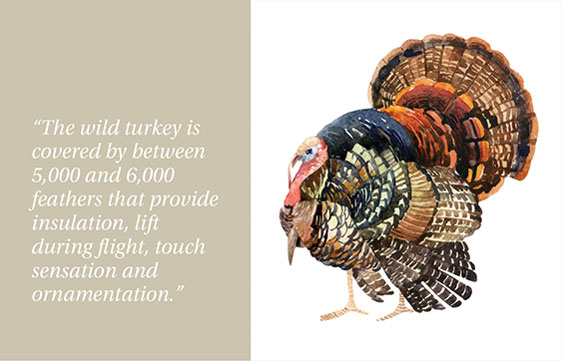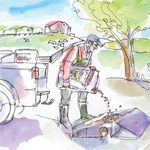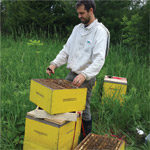
I AM ALONE WITH ONLY THE SOUND OF NATURE AROUND ME – the diagnostic clucking of a chipmunk, the explosion of wings as a ruffed grouse takes off, the flute-like melodies of a wood thrush sifting through the trees. I am at Peter’s Woods, an 82-acre provincial nature reserve, northeast of Cobourg, just a short drive from the community of Centreton. It is an older growth forest containing mature hemlock, white pine, massive beeches and oaks, some of them hundreds of years old.
The air is fresh and invigorating, punctuated with the fragrance of the forest – of leaves, mosses, and dank wood. I close my eyes and a feeling of absolute peace comes over me as my worries fade away and are lost in the morning haze over the Northumberland hills.
The soothing effect of the forest has become known as “forest bathing”. While awash in the tranquility, I am also breathing in the airborne phytoncides and fungicides emitted by the plants and trees. My body will respond to these natural compounds by increasing the number and activity of certain white blood cells that kill off tumour and virus infected cells. The forest becomes part of me. I can hear the endless robin-like phrases of the red-eyed vireo as he moves about in the canopy searching for insect larvae. An invisible blackthroated green warbler utters his lispy, wheezy notes nearby. I feel a connection between the insects, the herptiles and the birds. Everything in nature is interacting with each other – and with me.
The trail through Peter’s Woods is a short one that can be completed at a brisk pace in about 15 minutes, but I always spend at least two hours here, basking in the sights and sounds and rich smells of the forest.
A hermit thrush’s ethereal phrases filter through the pines. I also hear the two-part screams of a red-shouldered hawk. Although I don’t see it, his calls verify that he is present. Special moments that only a walk in a forest can provide.
With new evidence pointing to forests being able to neutralize toxins in our environment, perhaps we should concentrate on wooded trails where we can glean more benefits from our hiking efforts. The concept makes sense. We have spent so much of our evolutionary history in natural environments that returning to Nature is almost like a physiological homecoming of sorts.
Story by:
Terry Sprague




